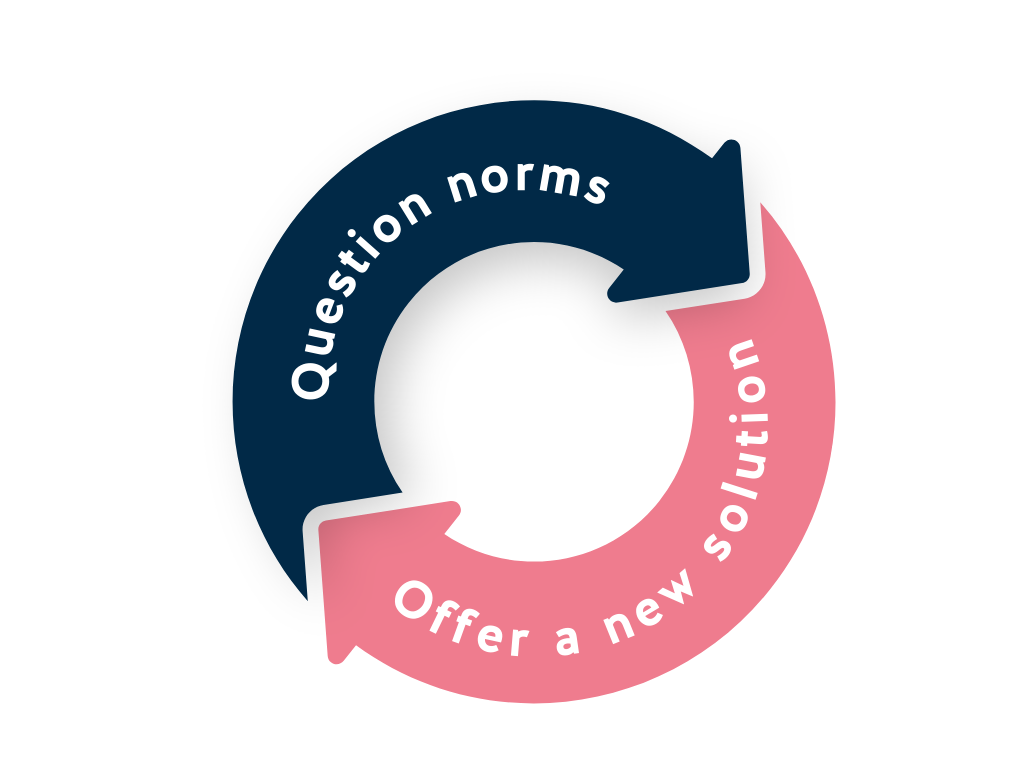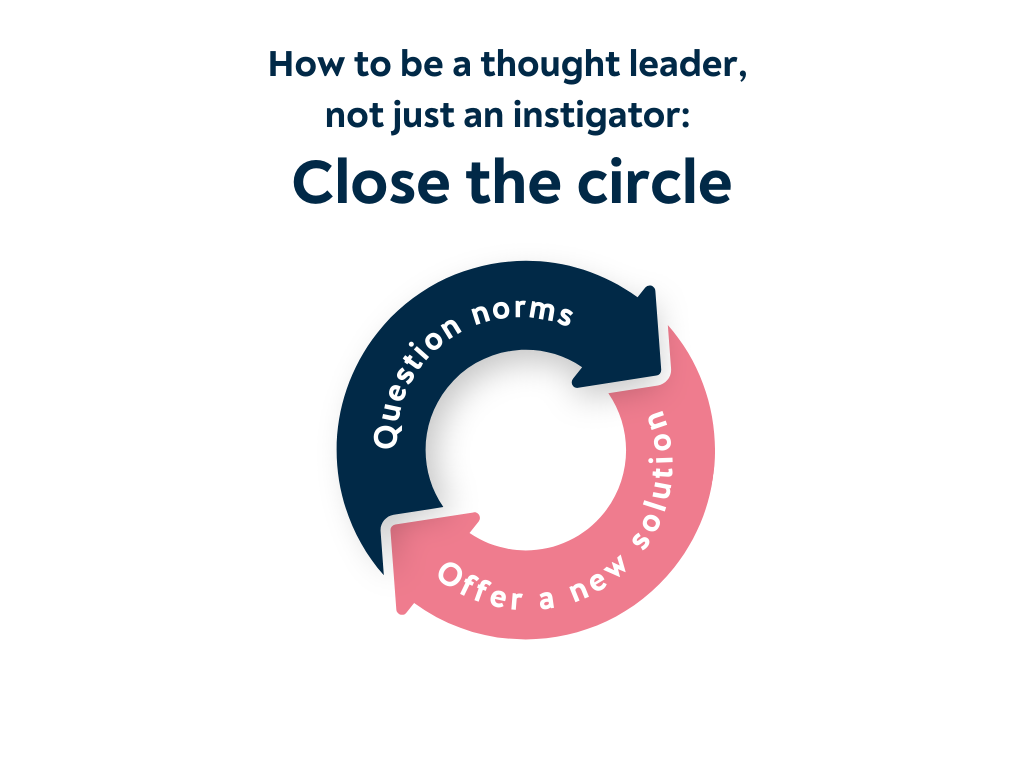How do you feel about challengers — people who question everything and shake things up? I think this personality type can make a helpful thought leader, as long as they present solutions along with their critiques.
I define “thought leaders” as people who think in public about their work. Thought leaders share what they know, how they learned it, and what’s coming next.
And most thought leaders fall into one of three categories:
- Beacons (who work in public and shine as an example)
- Curators (who connect people with each other and with helpful resources)
- Challengers (who offer a new perspective and start conversations)
I definitely play favorites. My favorite thought leaders and humans are beacons who lead the way forward.
But I want to talk about challengers. Challengers get a lot of our attention, especially on social media. They can be fun, brash, exciting, and controversial. They’re disruptors. They stir the pot — which is usually a good thing since there are a lot of pots that need to be stirred. Challengers question norms, push back on the status quo, and ask “why?”. They give us new ideas.
There’s a caveat, though. If you’re just blowing things up, poking holes in the old way, and lobbing critiques, you’re not a leader. You’re an instigator. You’re only doing part of the work of thought leadership.
To be a thought leader, you have to show people a new way forward. It’s fine (and good!) to critique the old ways, but thought leaders bear the responsibility of offering a solution. To be a thought leader, you have to lead.
The most effective challengers close the circle. They question a norm and offer a new solution.
- The old way stinks! [What if we tried this new way?]
- I’m so tired of the boring status quo! [Here’s an experiment I’m trying at my company to shake things up.]
- Did you see this awful thing? [I’d do X, Y, and Z to improve it.]

So remember, while it can be fun to instigate, stirring the pot is not the same as leading the way. Thought leaders offer solutions and new ways of thinking, not just critiques and complaints.






